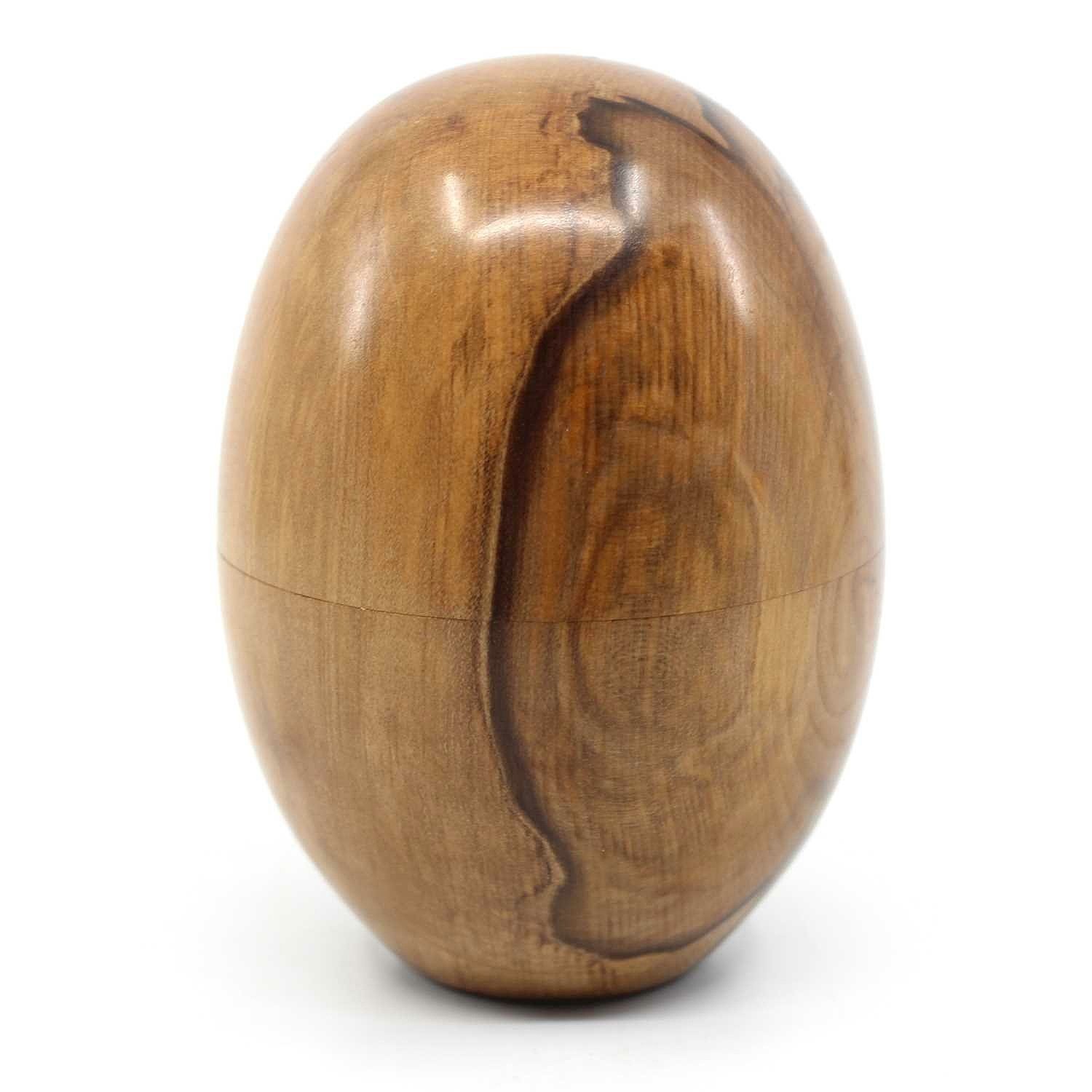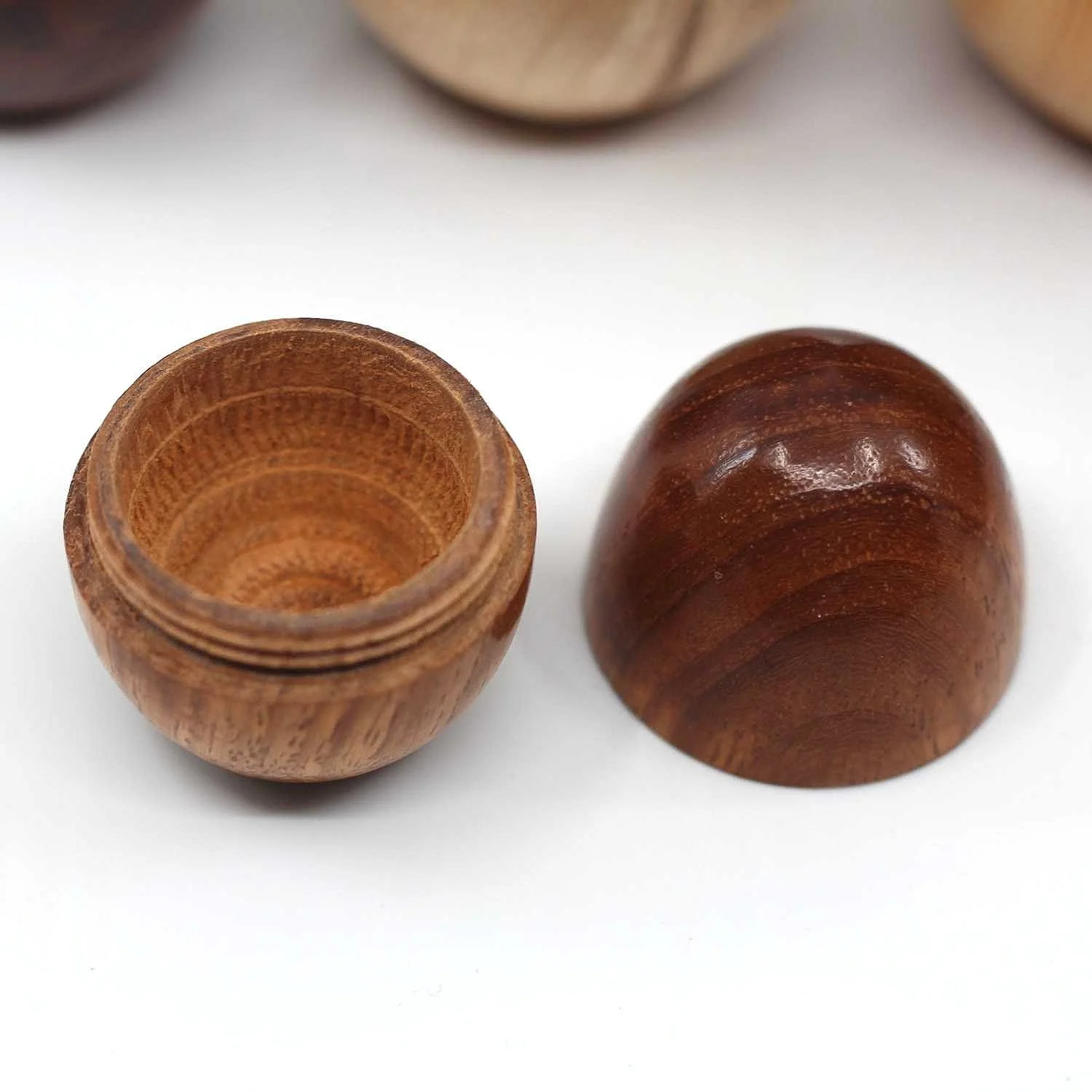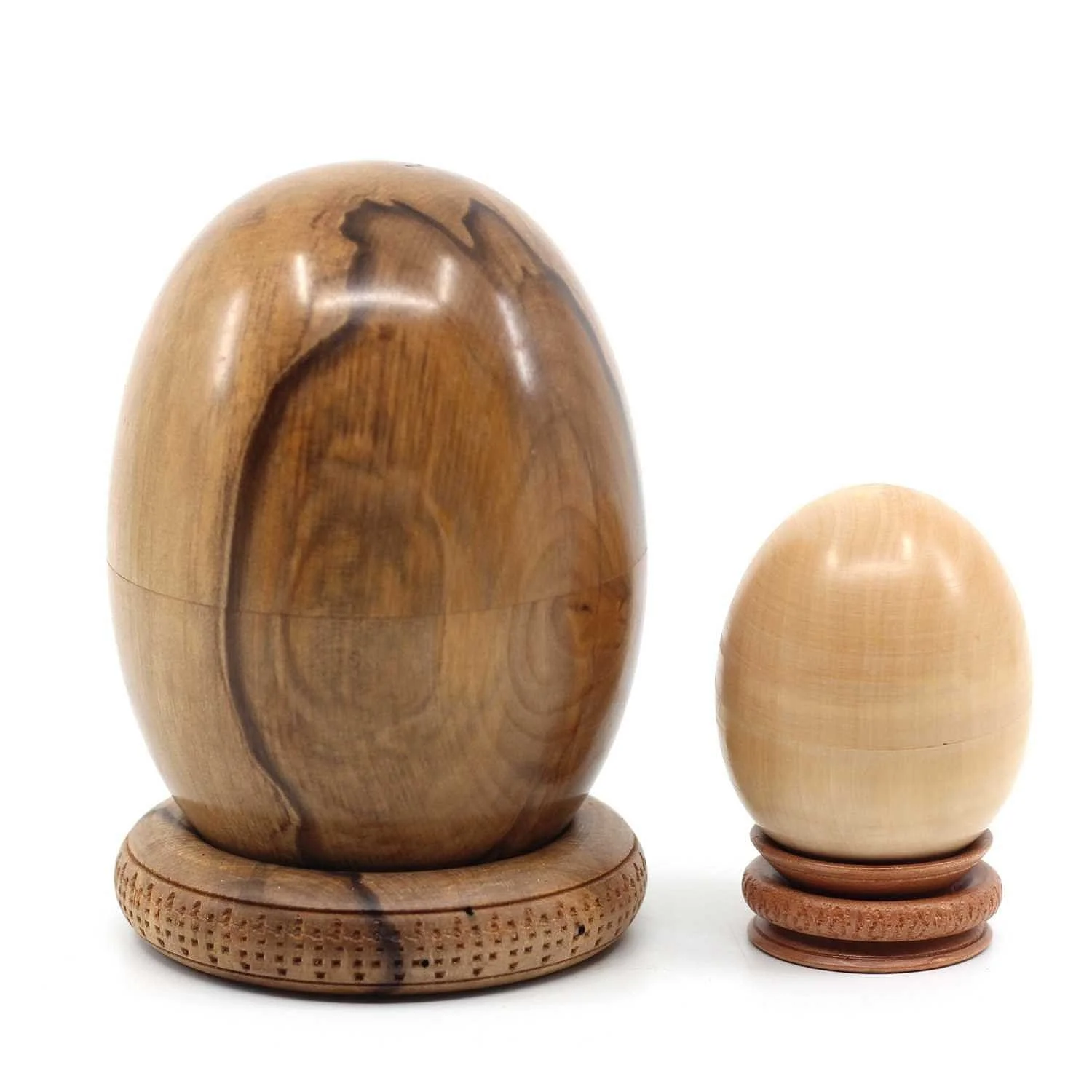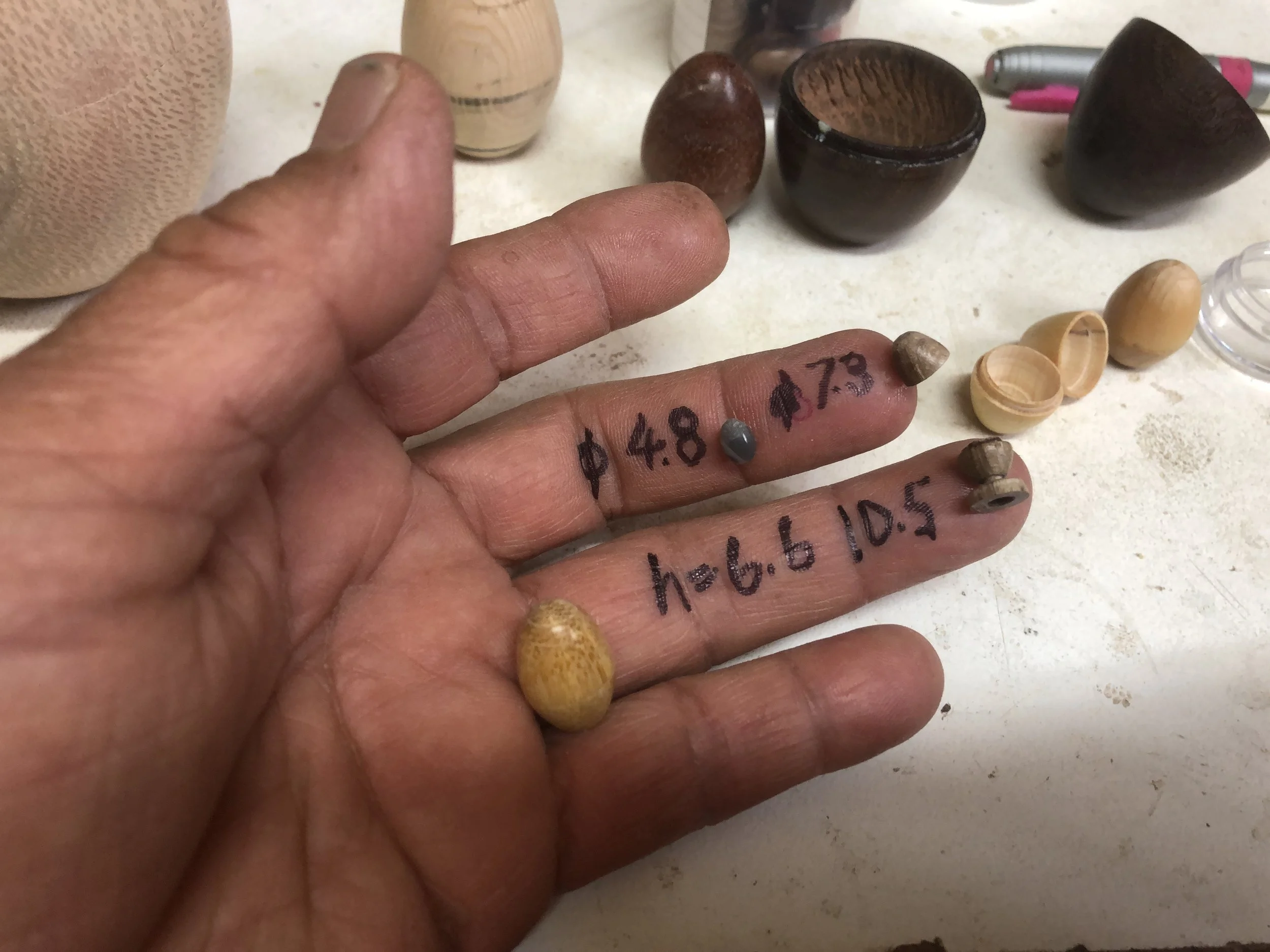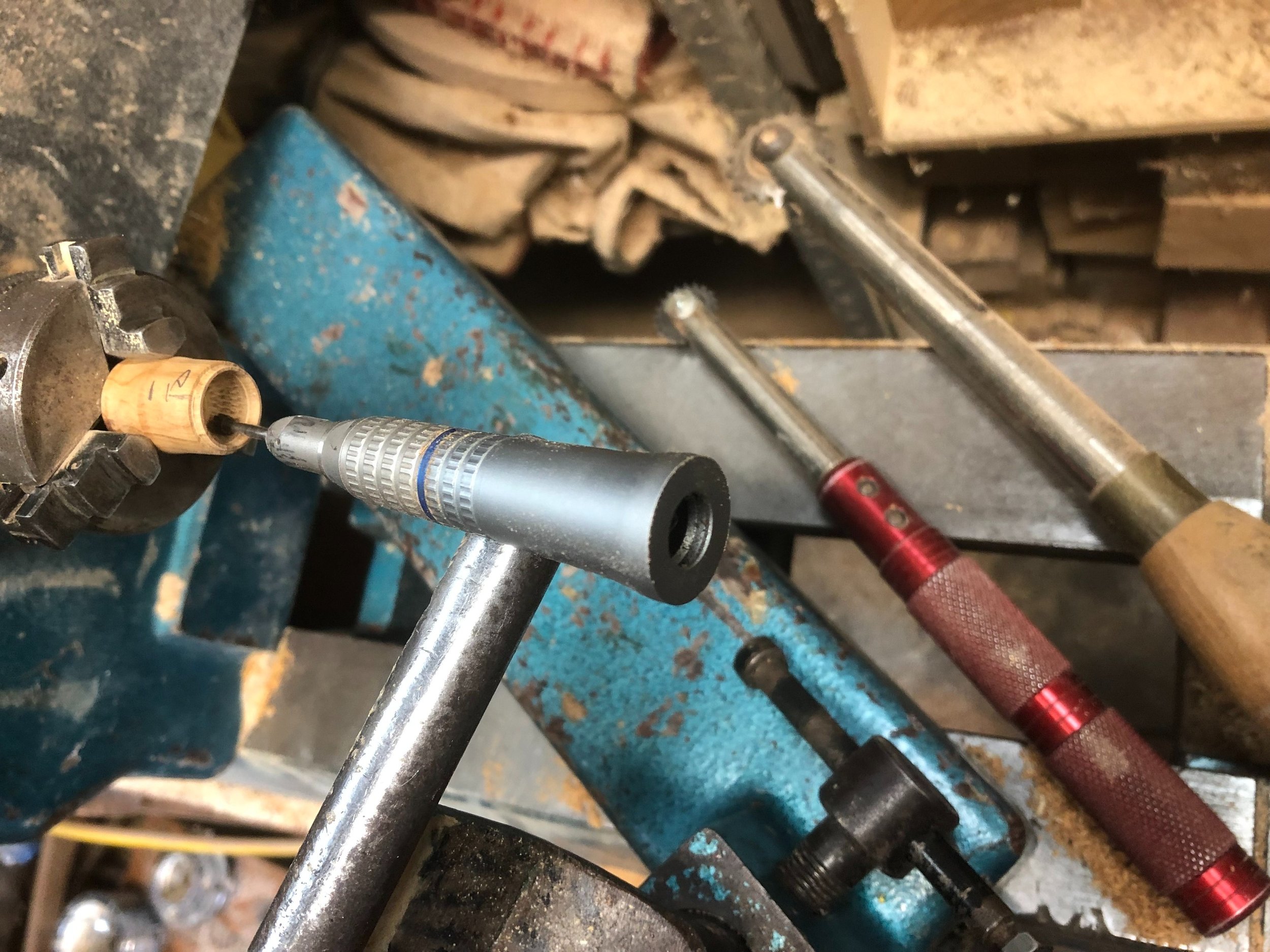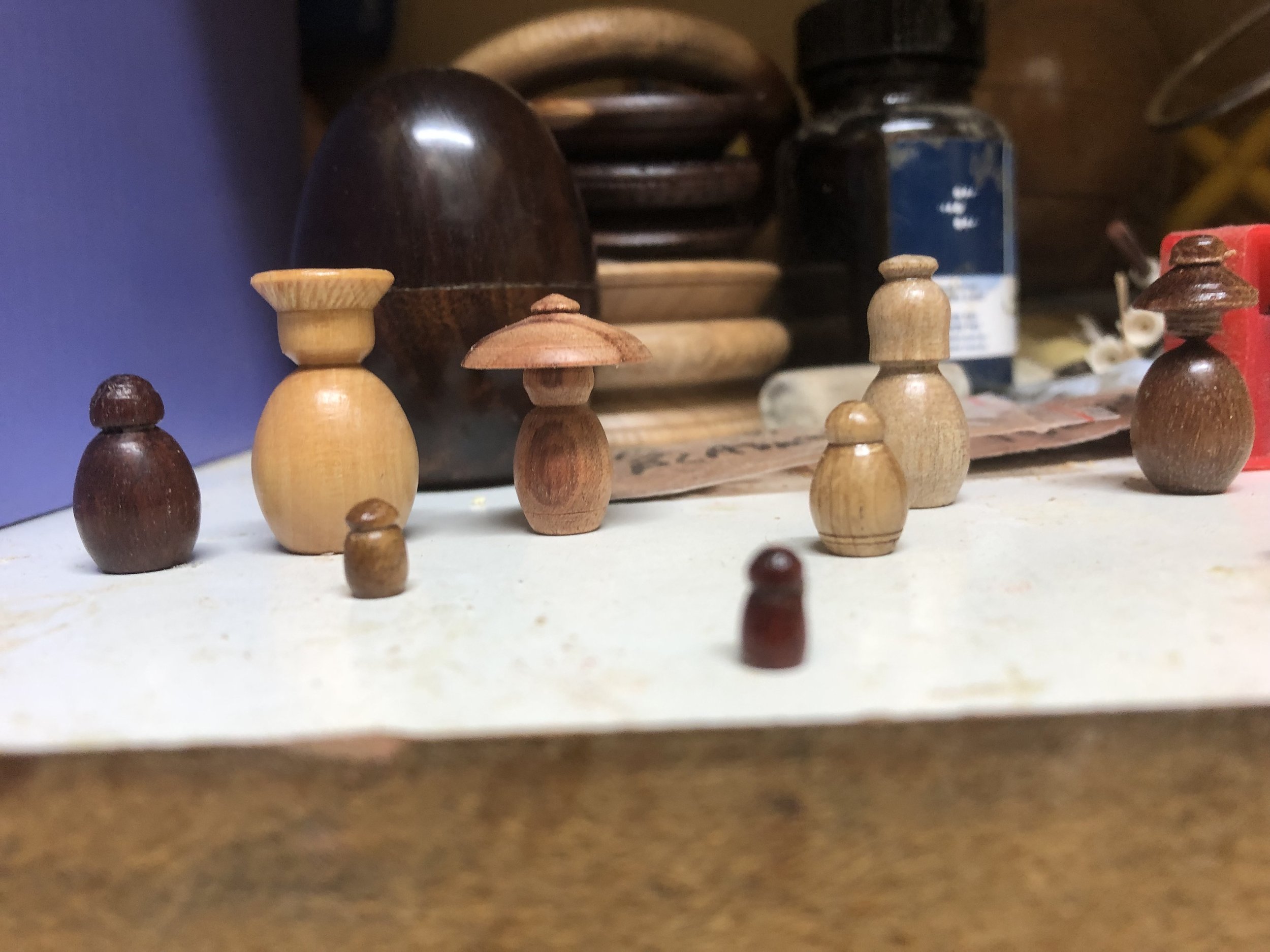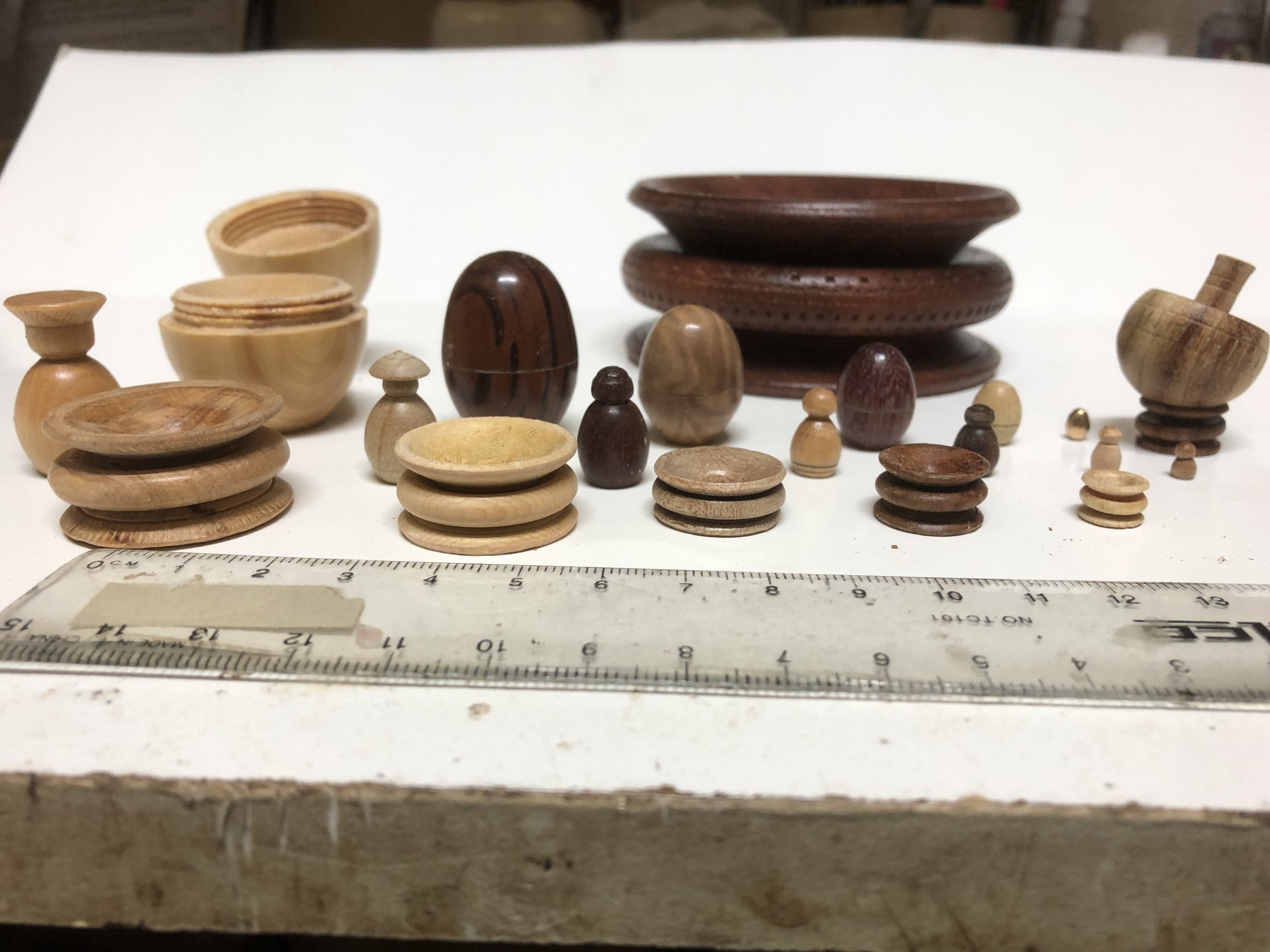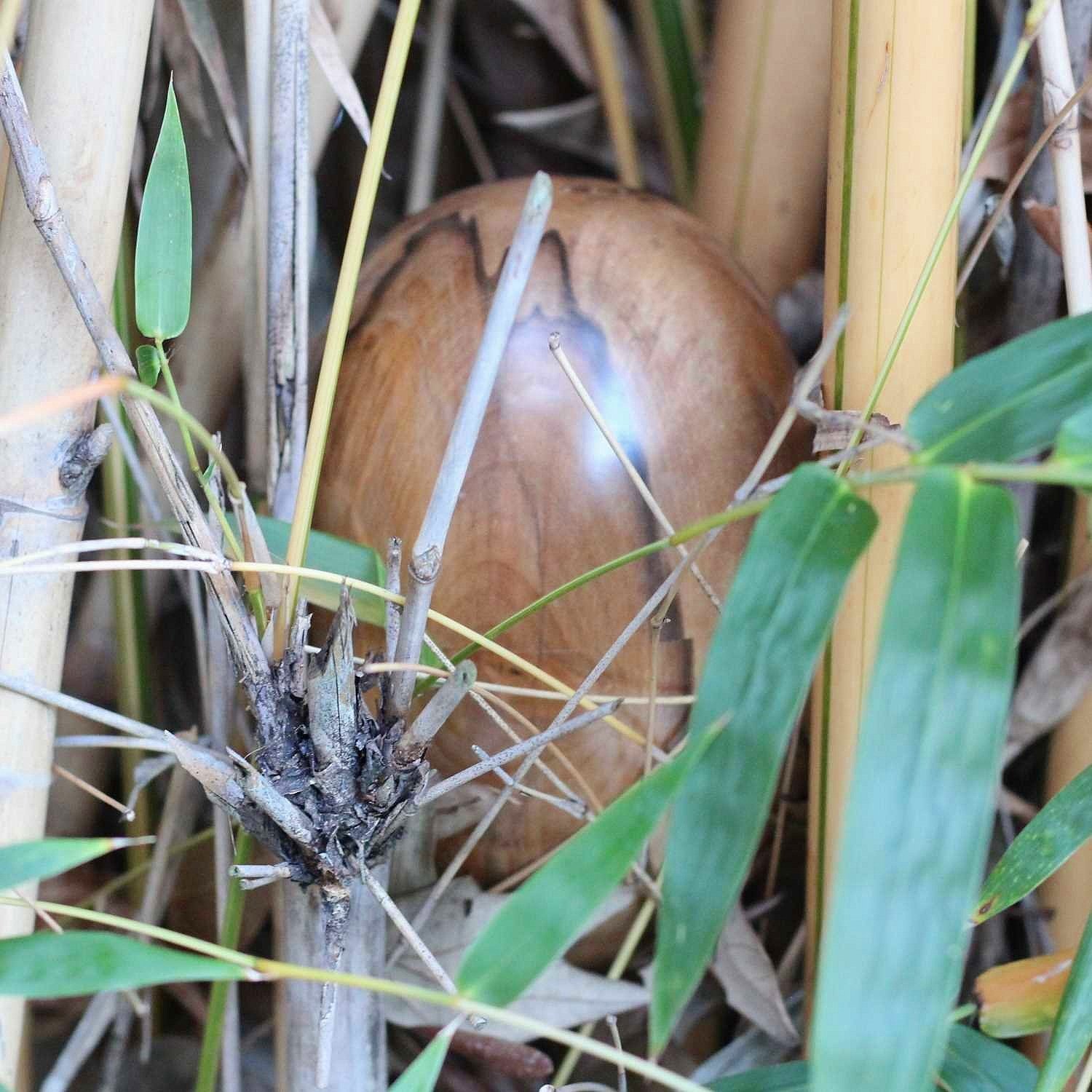Cupping Season
Matryoshka Eggs
Matryoshka Egg by Stephen Chin
I’m feeling symbolic and nostalgic all at once to start this new year. It’s the time of year (in the northern hemisphere of the world at least) for cuddling, either with someone or simply by wrapping yourself up in a layered comforter. These nesting eggs are perfectly symbolic of that sentiment, and as eggs, are also symbolic of beginnings, such as the first offering in a new year. I wonder what’s in store this year, and I hope you’ll join me as we find out.
Dr. Stephen Chin is no stranger to these pages, as the most talented wood turner making puzzles today. His skills with the lathe are legendary, and his award winning puzzle creations are numerous. If you have not had the pleasure, visit his artists page here on B&B to see and read about many of his prior productions.
hand-chased threads
Chinny, as he is fondly known, likes to pay homage to his own heroes of the lathe, master craftsmen whose own work has inspired him. John Berkeley, master turner of Hoffman era puzzles, for example, has been a huge inspiration, to the extent that Chin’s own famous “Ze Orange” puzzle was an homage and update to Berkeley’s award winning Pear puzzle. Chin also admires the late Japanese master Kazuyuki Tanaka, who contributed a scarce few beautifully turned works to the Karakuri Creation Group during the group’s inception, and had a long career in turning elegant spinning tops and nested eggs.
fine hidden internal details
In Tanaka’s own words, from the original KCG webpage: “I am a craftsman who uses a wood turning lathe. My father was also the same type of craftsman. While I was attending high school part-time, I took over my father's wood turning lathe business. I was fascinated by the enjoyment of Karakuri and the complexity of workmanship, and wanted to make a new type of Karakuri by using a wood turning lathe so I participated in a research group.
Ya, I reach Nirvana here too - Dr. Stephen Chin
I made Hakone type woodworking crafts of traditional art. I have made such things as Japan's smallest, small 3.8 mm in diameter “Hakone Good fortune Top”, Russian Matryoshka's Roots of “Seven Lucky Gods” and “Twelve Egg” all of which are part of the Odawara area of traditional crafts. In addition, the nesting works “Thirty six eggs”" is in the Kanagawa Prefectural History Museum.”
The Tanaka and Chin dozen
Tanaka-sans nested eggs are exquisite, perfectly shaped, egg shell thin and so small and light it’s hard to believe there is anything inside. Stephen Chin decided, after a long time of admiring the work and perfecting his own craft, that it was time to pay homage to the heritage of Tanaka’s eggs. He woke one morning three to four years ago with an idea.
courtesy of Stephen Chin
“Imagine a world of Matryoshka eggs, a dirty dozen made with exotic woods. The largest about 100 x 150mm, and the smallest being 4 x 6mm. Also imagine the smallest egg being, wait for it,,,,,,a real 24C GOLDEN egg!! That would be pretty , ,,,classic Chinnomotto. Huon, Tiger Myrtle, NZ Rimu, Red Mallee Burl, Jacaranda, Hairy Oak, Camphor Laurel, Black butt, EBONY! opps, I fainted and peed on my pants.”
I spent 7 months laying eggs, 30 dozens and I bust just as many - SC
courtesy of Stephen Chin
Chinny is a mad genius with a wicked sense of humor and a heart of gold, just like his matryoshka eggs, which really do include a final solid gold egg nugget at their core. He uses the most incredible exotic woods, polished to a lustrous shine, and carves intricate details hidden on the insides. There are even a few eggs in each set with hand-chased threads so they screw together, and this can get quite puzzling!
The rings are soo tight, some just barely spins, and keeping the height short, aesthetically pleasing to the eye - SC
For size reference, the 24 carat gold eggs are 4 x 6 mm - SC
courtesy of Stephen Chin
In all he made around 30 sets of his nested dozen matryoshka eggs that he deemed acceptable. That’s not counting all the eggs that never made it. He recalls the first full set that he felt was perfect. “After 120 eggs and I bust just as many, I have reached Nirvana. Duplicating Nirvana, another challenge, I am very close. It’s that funny particular shape that is pleasing to the eye. It’s about the height levelling as you align the eggs next to each other.
Ya, I bust every 2nd one, end grain cracks and careless, pushing limits - SC
Now you know why it takes 2 hrs per egg, and 4 for the threaded ones - SC
courtesy of Stephen Chin
Long story, 10 pages of calculations, and as many graph paper used. The eutopic shape is another story, the profile is very pleasing to the eye. Each egg fits snuggly into the next bigger egg with carbon paper etc. Then you resand the marks off and repolish, total 4 times, 7 grades of sandpaper. Internal texturing is a wow all the way thru to even the smallest wood one. Anyway its just a set of Matryoshka eggs, Chinnomotto way, cute.”
Little Egg peoples, Evolution, has to happen - SC
Now to make them levitate and make breakfast - SC
courtesy of Stephen Chin
Making the nested eggs was a labor of love that required countless hours and huge amounts of wasted wood (as each eggs is hollowed out). Chinny has always been exceptional at conserving as much wood as he can, however, and makes all sorts of little extras from the cutoffs and scraps he can salvage. He even invented an impossible egg stand known as the “trapped ring stand”.
trapped ring stands
courtesy of Stephen Chin
“So much sawdust, a cardboard boxfull per set. And pushing limits, and so much sawdust waste, but there is some salvaging. Technically I can make 4 pens and a ring from a square block. And the chuck end holding half the egg, a trap ring stand, a round ring and the centre little peoples, small egg bookmark. Apparently I Google Trap Ring stands and found nothing. Ask my woodturning friends, they have never seen them before either. Soooo, it’s another invention of mine. I am famous again. Then I dropped a Ebony normal size [egg] on the garage floor, Ya, it cracked, this one hurts, story of my life.”
Vermouth Flip by Shaun Byrne
I’m raising my glass in a toast to these incredibly fine eggs and their amazingly talented craftsman with something eggceptionally delicious. A cocktail made with a whole egg is commonly referred to as a “flip” and can be imagined much like it’s well known relative, eggnog. Flip originally did not contain egg but was a very popular drink of the colonial era containing rum, sugar or molasses and beer which was then heated with a red hot iron known as a “loggerhead”. In the nineteenth and twentieth century, flip became synonymous with the inclusion of an egg in the drink, which was no longer heated but rather shaken with ice.
go ahead, flip out
Classic flips and eggnogs are based with rum or brandy, but alternate spirits can make for incredibly interesting variations, such as Jeff Morgenthaler’s beloved recipe which I featured last year. In the vermouth flip, chocolate infused sweet vermouth provides an irresistable dessert forward base spirit which is tempered by a hint of bitter amaro. The sweet maple syrup and whole egg turn the affair into a rich and decadent eggnog like confection with a smooth and velvety texture. It’s a wonderful way to start the new year – cheers.
a little eggstra to start the year
Vermouth Flip by Shaun Byrne
1 ¾ oz cacao nib infused sweet vermouth (Carpano Antica preferred)
¼ oz Fernet-Branca
¼ oz maple syrup
1 whole egg
Shake all ingredients with ice for 10 seconds and double strain into a scotch glass. Grate fresh nutmeg over the top.
I need to get a life - SC
explore more:

